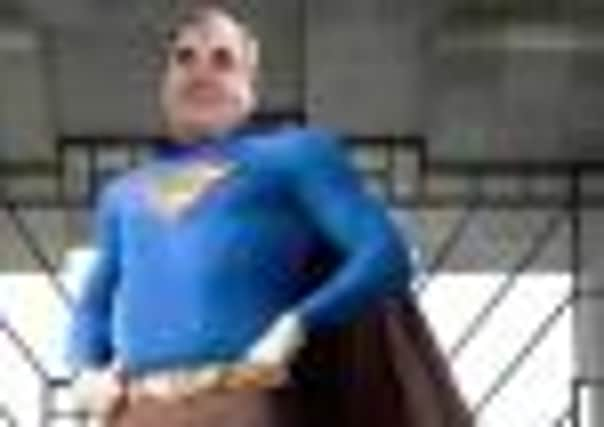Preview: SNP Party Conference - It’s not all super Salmond


AFTER signing the Edinburgh Agreement with David Cameron earlier this week, clearing the way for the independence referendum, Alex Salmond joked about the warning from his aides: “Don’t look triumphalist.”
But at the SNP’s conference, getting under way in Perth today, the First Minister will feel less need to hide his delight at a deal which gives him most of what he wanted – from the autumn 2014 date, to votes for 16 and 17-year-olds.
Advertisement
Hide AdAdvertisement
Hide AdTomorrow, the SNP leadership is expected to see off a rebellion against plans to change the party’s stance on Nato, underlining Mr Salmond’s authority in the party.
Several MSPs have come out against the move, a rare public split in the Holyrood group, but insiders say there is little doubt about the outcome.
Abandoning the long-held policy that an independent Scotland should not be part of Nato is part of the SNP’s mission to reassure the public that independence would not mean major upheaval.
Not only would Scotland still have the Queen as head of state, sterling as the currency and EastEnders on TV, it would also remain part of the western military alliance.
Advertisement
Hide AdAdvertisement
Hide AdBut despite the strategy of emphasising continuity amid constitutional change, voters seem stubbornly unpersuaded on the merits of independence.
A new poll today showed a 58-30 per cent split against Scotland going it alone. Although polls do show strong support for more powers for Holyrood, that option will now not feature on the ballot paper, leaving many voters having to decide which is their second preference: independence or the status quo.
A second question in the referendum would have allowed Mr Salmond a consolation prize. Even if people were not willing to back independence, the “more powers” option would almost certainly have carried the day and given the SNP a partial victory, another advance towards its ultimate objective.
Many SNP activists, however, never wanted a second question, insisting independence can win and seeing any other option as an obstacle to that goal. They will be pleased that this was the issue on which Mr Salmond agreed to compromise.
Advertisement
Hide AdAdvertisement
Hide AdThere was also speculation that, if polls still showed a clear majority against independence as the big day approached, Mr Salmond would find some way not to hold the referendum at all. However, the Edinburgh Agreement, giving Holyrood the necessary power to hold the referendum, removes the prospect of a legal challenge to halt the process. And the party might never have forgiven a postponement anyway. So, now the referendum will go ahead and it will be just the one Yes/No question. For Mr Salmond and his colleagues, it’s all or nothing.
When challenged on how he can win the vote when the polls show such a big lead for opponents of independence, Mr Salmond’s response is to remind people how he led the SNP to an overwhelming victory in last year’s Holyrood elections despite widespread predictions – and poll projections – that Labour would win.
No-one can deny that triumph. The SNP’s unprecedented overall majority in the Scottish Parliament is testament to the First Minister’s powerful appeal and the weakness of the opposition, But he knows the election victory had little if anything to do with the SNP’s commitment to independence.
However, the SNP believes there is a big pool of people who can be persuaded to see things its way.
Advertisement
Hide AdAdvertisement
Hide AdIt points to a YouGov poll last weekend which found that if people thought they and their families would be better off in an independent Scotland, 45 per cent would be likely to vote Yes, compared to 36 per cent who would vote No.
The SNP is making the most of Scottish Labour leader Johann Lamont’s announcement that her party is reconsidering the free provision of public services from tuition fees to prescription charges. The SNP commissioned a new poll which shows that up to 30 per cent of people in Scotland are more likely to support independence if they believed it would protect policies like free personal care for older people.
One senior Salmond aide said: “Given that a Yes vote will be achieved by persuading those who currently support more powers for the parliament to vote Yes to an independent Scotland, these figures reflect a remarkably high level of linkage people are already making between the case for an independent Scotland as an alternative to Westminster austerity.
“There is a clear potential majority in Scotland for independence – and if we win the argument we will win the vote.”
Advertisement
Hide AdAdvertisement
Hide AdMr Salmond is also keen to present the “all or nothing” choice to those who might be tempted to vote No and look to the UK Government to come forward with more powers for Holyrood. All the pro-Union parties have talked about further devolution, but what pressure would there be on them to deliver if Scotland had just rejected independence? The SNP will try to persuade people that a No vote simply lets Westminster off the hook.
The Edinburgh Agreement is the ideal backdrop for Mr Salmond and his party as they start their annual conference. But with the polls showing a persistent majority opposed to independence, they know they face a Herculean task in trying to win the referendum.